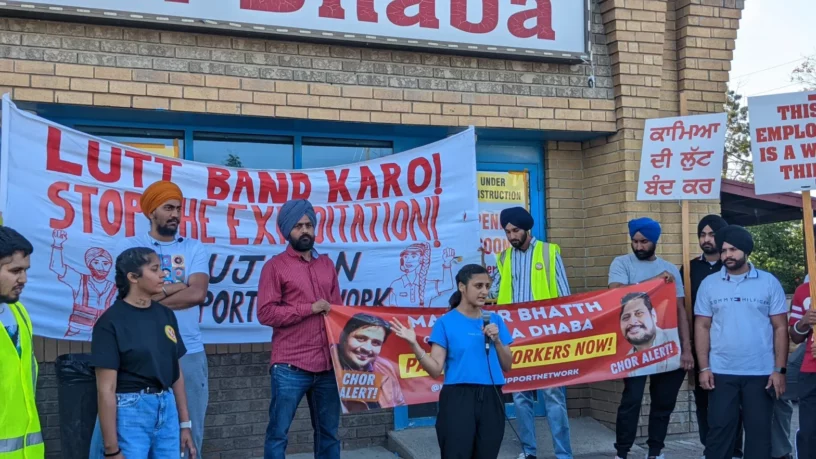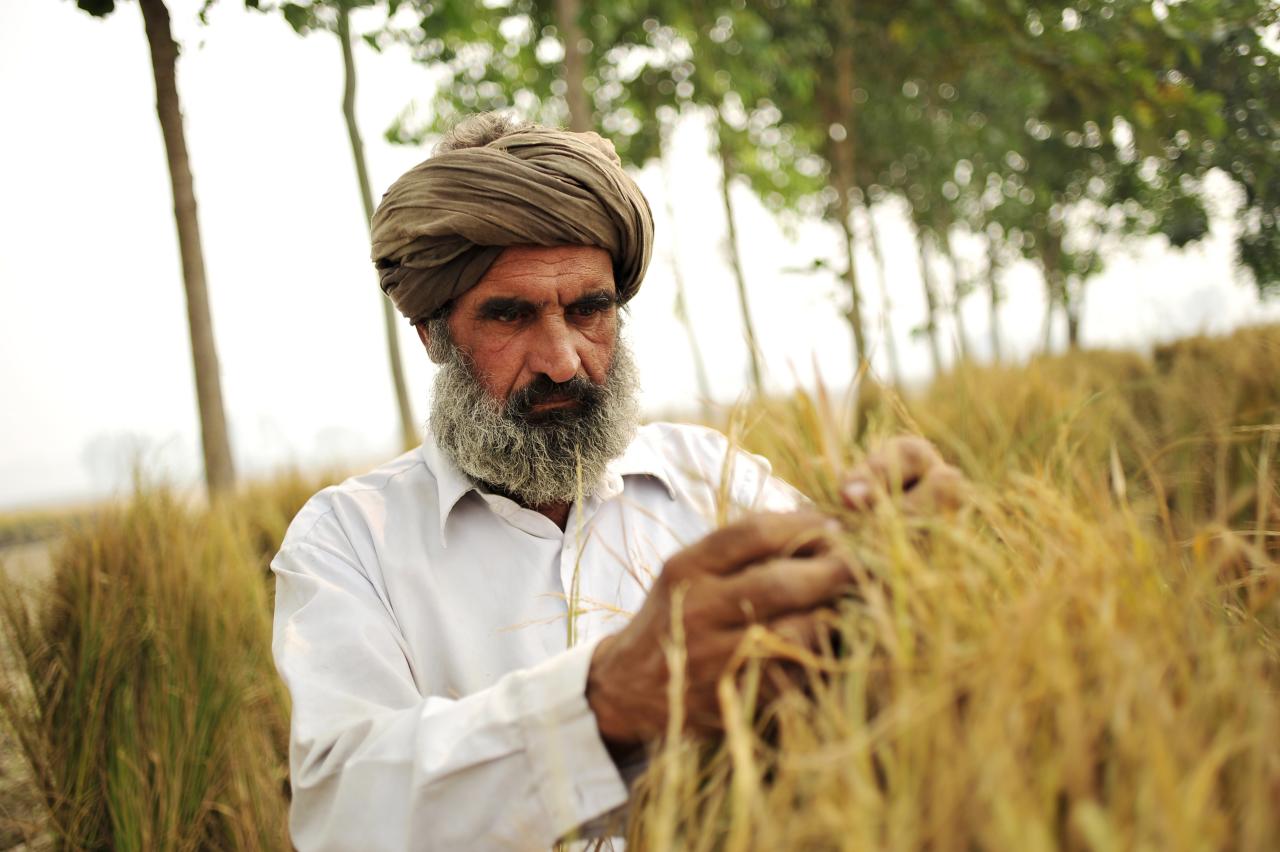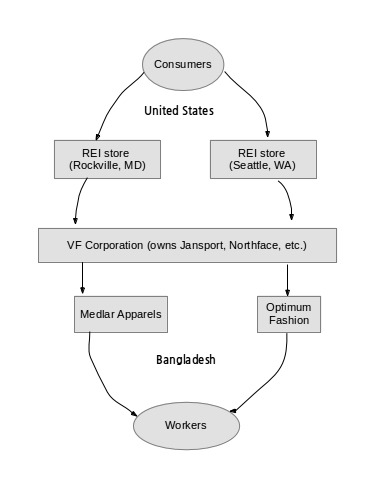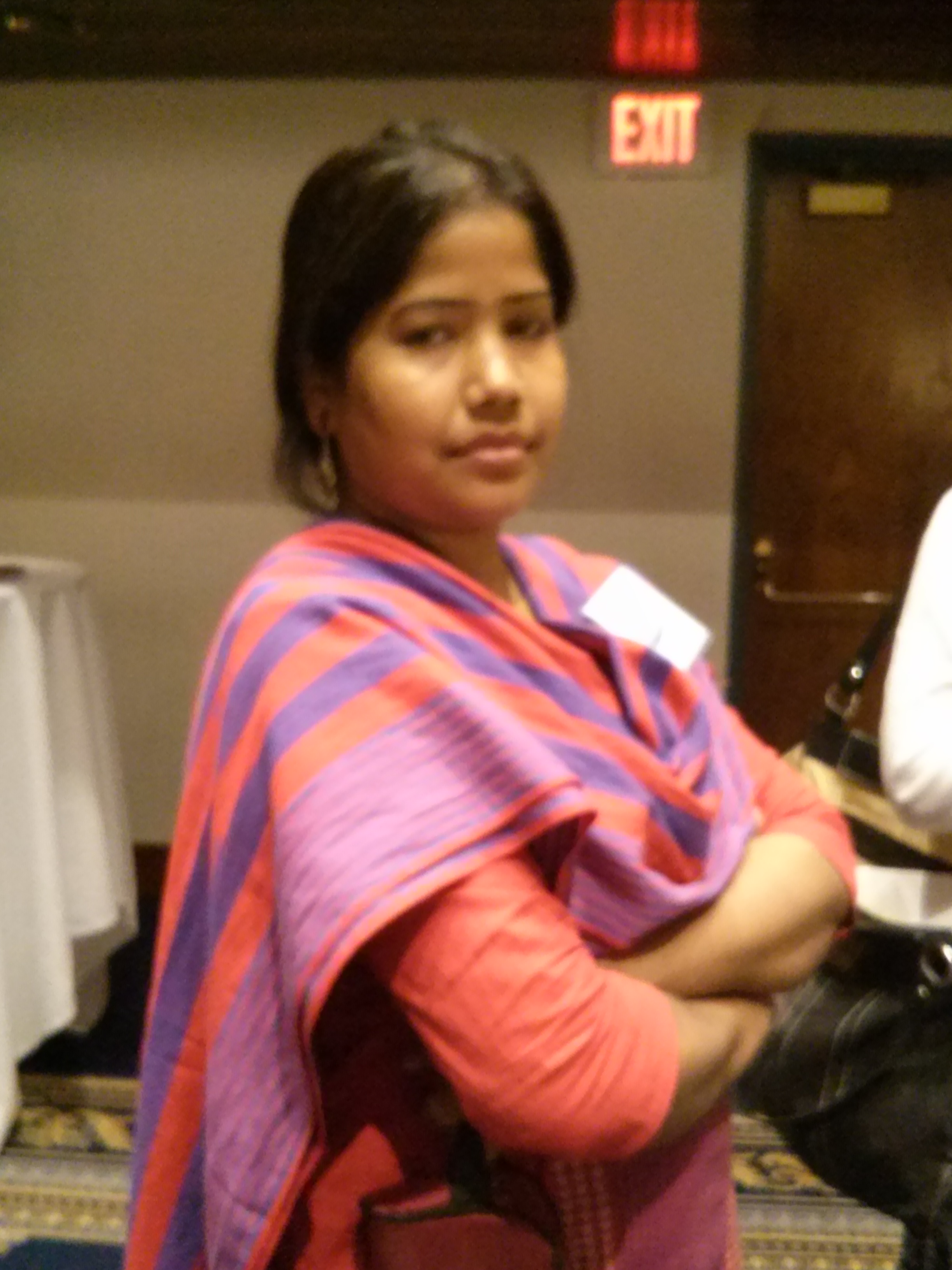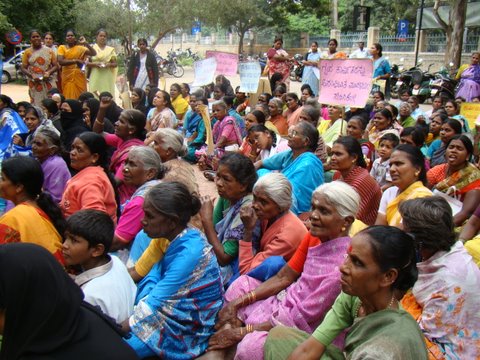
The protest at the Labor Department “clearly reveals the collective assertion of domestic workers, covered by no law or social security,” according to Geeta Menon
by Lavanya Nott
It is a weekday afternoon in early October. About fifteen women ranging in age from about twenty to sixty gather in a small two-room office in Jaynagar in South Bangalore. This is Dussera season, and on this day of the festival, it is customary to worship one’s work tools, so the women have brought along buckets and mops. They are here for a meeting, but before it begins, one woman performs a small puja, and another distributes sweets.
This is the Executive Committee of the domestic workers’ union that operates under the umbrella of Stree Jagruti Samiti (SJS), a non-governmental organization based in Bangalore, India and formed by long-time women’s rights activist Geeta Menon. The group is fighting for the rights and welfare of those in the unorganized sector.
The women gathered for the Executive Committee sing praises of the union, giving it credit for educating them on their rights. One woman, Saraswati, talks about how, after her involvement with the union, she is able to state her own terms and conditions to potential employers before being hired, thus tilting the power dynamic more in her favour. The women tell the story of a fellow union member Shaila, who was wrongfully accused of theft. Shaila was thrown out of her employers’ house, and was standing at their gate, crying, when Vonamma, the president of the Executive Committee, and other members of the union came to support her.
Vonamma was able to articulate to the employers that if they were intent on firing Shaila, they would have to make an official police complaint and find some evidence of her guilt. The employers finally gave in, admitting that there had been no theft. Shaila was unable to keep the job, but she was able to retain her pride and her employer was made to apologize. It seems like the community that the union has helped build among these women has been a major driving force for their strength—both collectively and individually. The women have been inspired by one another, and are learning from each other’s experiences.
Vonamma was seven years old when she began domestic work. Born in Bangalore, her father died very soon after her birth. Her mother—also a domestic worker—was left with the task of raising eight children. None of them received an education, and as a result, they also joined the workforce. Vonamma toiled away in a kitchen, standing on a stool that would raise her small figure to the kitchen counter, and was beaten by her employers when she displayed tiredness. Now she is twenty-nine, is unmarried, and lives with her mother. On this afternoon, she is cheerful and animated, and leads the proceedings when the meeting commences.
The Executive Committee is elected during the union’s general body elections. Women are recruited to the union through intensive fieldwork: SJS goes directly to the places where they live and work. Menon says, “The first step is to recognize that these places are no longer just slums, but labour colonies.” Most of the women in the union live in slums, and SJS’s work involves recognizing that these urban spaces are not merely dwelling places, but sources of labour, and that these women are economic entities. Making an effort to move on from thinking of slums merely as the residences of these women is making the effort to recognize the work that these women do—including daily labour in their own homes, in their capacities as wives, mothers, daughters, daughters-in-law, caretakers, and as women living on the economic margins.
Hailing from various parts of South India, the shared characteristic among the women of SJS is a lack of education and skills. Most only went through a few years of school. For instance, Rajeshwari, the Secretary of the union, was pulled out of school at age fifteen. While this lack of education severely hampers the women’s social and economic mobility, Rajeshwari says that working with the unions has undone some of that for many of the women. They are in many ways more empowered to stand up for themselves and preserve their dignity. Saraswati, a member of the union, says that most of the women state their own terms and conditions to future employers, and inform them of their involvement with the union. It appears that being unionized has given these women a greater sense of self and belonging—some larger context and perspective from which to think about the work that they do and their legitimate, economic contributions to their communities.
Rajeshwari works for two families in Mantri Elegance, one of many colossal high-rise apartment buildings that have sprouted in Bangalore in the past two decades. These high rises house Bangalore’s ever-expanding upper-middle class—a generation of young software professionals nurtured and supported by Bangalore’s IT-dominated economy and representative of India’s growing neoliberal practices of large-scale consumerism and capitalism. The great influx of money that this economy has created has given this professional middle class that much more spending potential, leading to a greater demand for domestic help.
While most of the women have resigned themselves to lives in the informal sector—lives that, in all probability, will continue to be on the margins of Bangalore’s society and economy, they seem determined to fight for the rights and dignities they deserve, and more so, for happier lives for their children. The most difficult step in this movement appears to be the translation of these dreams of respectable wages, regular bonuses, and workplace dignity into reality. Two factors stand out more clearly than others as hindrances to the fulfillment of these dreams: firstly, the oppression and mistreatment of domestic workers is firmly embedded in Indian middle-class society’s psyche, and much of the struggle for these women’s rights depends on some level of malleability on the part of their employers. Secondly, there is a sense of inertia among the women when it comes to taking larger steps forward, especially with regard to their own literacy and education. Solving these problems—for example, mobilizing these women to participate in adult education programs of some sort—however, is an expensive, resource-consuming endeavor.
Continue reading →

